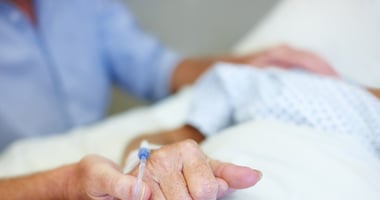Study Identifies Medications Effective for Treating, Preventing Delirium
 |
Yi-Cheng Wu, M.D., of Linkou Chang Gung Memorial Hospital in Taoyuan, Taiwan, and colleagues compiled data from 58 clinical trials for delirium; these included 20 trials assessing therapeutic interventions for delirium and 38 assessing preventive interventions. The trials involved more than 9,600 individuals who had delirium due to a variety of possible causes such as being in critical care, undergoing major surgery, having a chronic illness like cancer, or being of advanced age.
Among the studies testing medications to treat delirium, only patients given haloperidol (currently the most commonly used medication for delirium) or haloperidol plus lorazepam had better response rates (fewer delirium-related symptoms) than those given placebo. The haloperidol-lorazepam combination was superior, according to the analysis; patients prescribed haloperidol plus lorazepam were 28 times more likely to respond than those prescribed placebo, while patients prescribed haloperidol were about 2.4 times as likely to achieve a response than those prescribed placebo.
Among the 38 preventive studies, four treatments were found superior to placebo at reducing the risk of delirium: dexmedetomidine hydrochloride, olanzapine, ramelteon, and risperidone. Of these, ramelteon had the strongest preventive effect, reducing the risk of delirium by 93% relative to placebo.
The study authors cautioned, however, that haloperidol-lorazepam and ramelteon were studied in only one trial each. “Future large-scale RCTs investigating the treatment effect of haloperidol plus lorazepam and the preventive effect of ramelteon are warranted to corroborate the findings,” they concluded.
To read more about the management of delirium, see the Psychiatric News article “Common Delirium Medications Found Not Effective in Critically Ill Patients” and the Journal of Neuropsychiatry and Clinical Neurosciences article “Responding to Ten Common Delirium Misconceptions With Best Evidence: An Educational Review for Clinicians.”
(Image: iStock/sudok1)






